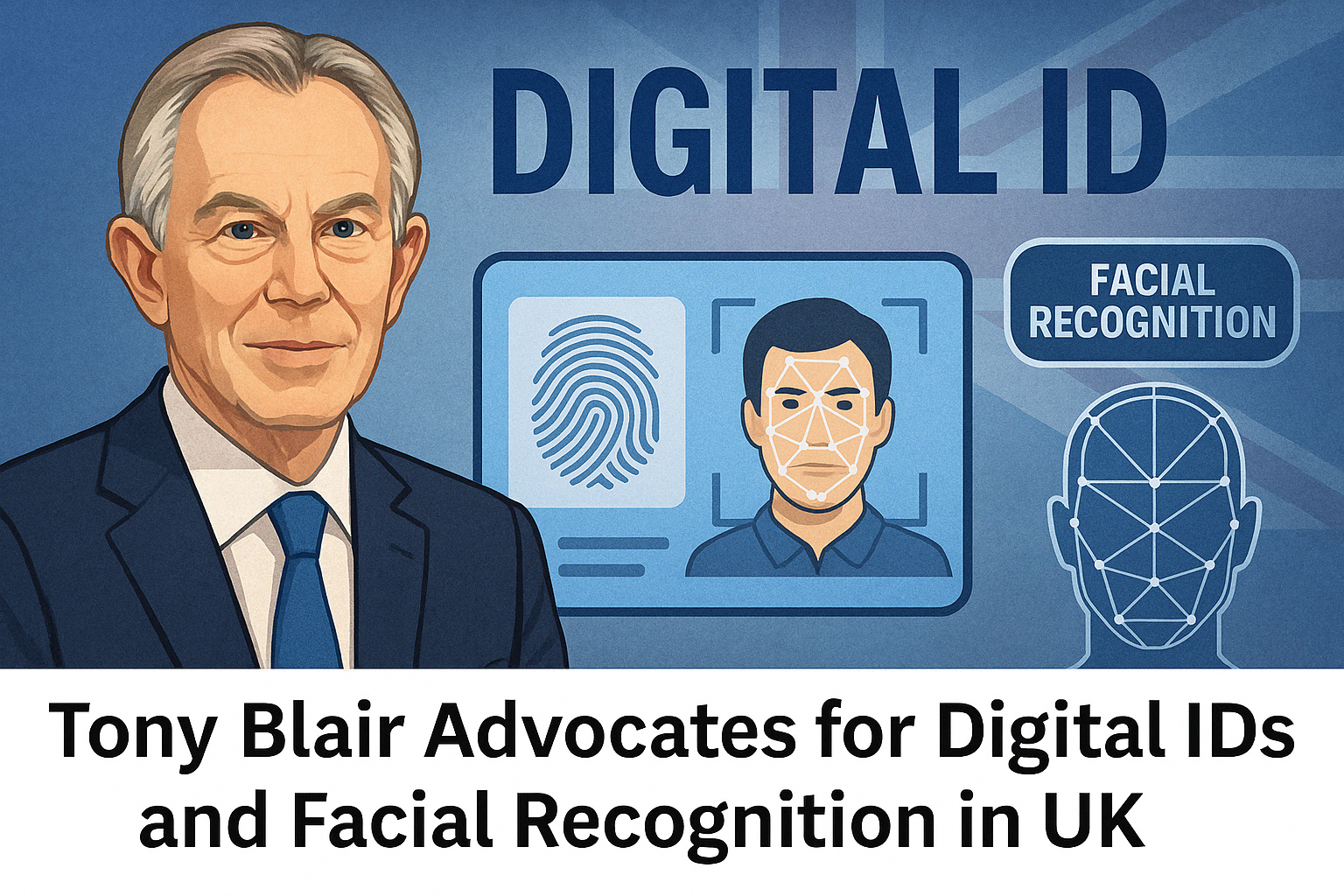As governments worldwide accelerate digital transformation, the latest push comes from former UK Prime Minister Tony Blair, who has called for the adoption of digital identity systems and live facial recognition technology to enhance justice and public services. His endorsement adds momentum to a growing global trend—leveraging biometric technologies to fight fraud, modernize public infrastructure, and increase efficiency. With the UK eyeing broad implementation and projected cost savings by 2029, investors are taking notice of the digital ID sector’s explosive potential.
Why This Matters for Investors
The global digital identity market is projected to grow from $27.9 billion in 2022 to over $70 billion by 2027, according to MarketsandMarkets. Blair’s backing of digital ID and facial recognition technologies comes as part of a wider public sector modernization strategy, aiming to streamline service delivery, reduce identity fraud, and improve public safety. For tech investors, this signals a government-driven tailwind for companies specializing in biometric identification, digital wallets, and secure cloud-based identity verification platforms.
Blair, through the Tony Blair Institute for Global Change, argues that the use of facial recognition and digital ID systems would enhance the justice system’s effectiveness and reduce operating costs. His plan emphasizes AI-powered identity verification and cloud-based public records as a means to create more efficient, secure, and equitable systems.
Sector Momentum and Government Support
The UK isn’t alone. Globally, countries like India (with Aadhaar), Estonia, and Singapore have already implemented national digital identity frameworks. In the private sector, major players such as Mastercard and Microsoft are investing heavily in decentralized identity solutions, while startups like Onfido and Yoti continue to innovate in facial recognition and document authentication.
In the UK, the Home Office has reportedly increased its partnerships with technology vendors offering AI-powered surveillance and digital identification systems. Analysts at Deloitte and PwC have noted that digital ID technology could save the UK government billions in fraud prevention and administrative costs over the next decade.
Future Trends to Watch
- Biometric Authentication: Growing reliance on facial recognition, fingerprint scanning, and iris authentication for access control and identity verification.
- Decentralized Identity Systems (DID): Use of blockchain technology to give individuals control over their personal data while improving security and privacy.
- Public-Private Partnerships: Increased collaboration between governments and private tech firms to implement scalable identity infrastructure.
- Privacy Legislation Impact: As adoption expands, regulatory clarity (e.g., GDPR, UK Data Protection Bill) will shape the market landscape.
Expert Commentary
“Governments are increasingly viewing digital identity as foundational to 21st-century public service delivery,” said Julian David, CEO of techUK. “Investors should understand this is not a passing trend but a structural shift in how identity is managed and verified.”
Key Investment Insight
Investors should keep a close watch on firms leading the digital identity and facial recognition market. These include:
- Thales Group (EPA: HO) – A major player in digital identity and biometrics for governments.
- Idemia – Specializing in secure identity solutions and facial recognition for both public and private sectors.
- Onfido and Yoti – UK-based tech companies gaining traction in AI-powered identity verification.
- Microsoft & Okta – Major players investing in identity as a service (IDaaS).
Actionable Takeaways for Investors
- Monitor regulatory developments and government procurement announcements related to digital ID and facial recognition technologies.
- Track earnings reports and growth metrics from companies operating in biometric tech, cybersecurity, and IDaaS sectors.
- Look for merger and acquisition activity in the identity space as larger tech players seek to expand capabilities.
- Consider ETFs or thematic funds focused on digital transformation and cybersecurity for diversified exposure.
Tony Blair’s public advocacy for digital identity and facial recognition is more than a policy suggestion—it’s a signal that the UK may be entering a phase of accelerated digital transformation. For investors, this represents a ripe opportunity to engage with a high-growth tech subsector backed by both technological innovation and public policy momentum. Stay ahead of the curve with daily updates and expert financial insights at MoneyNews.Today.





